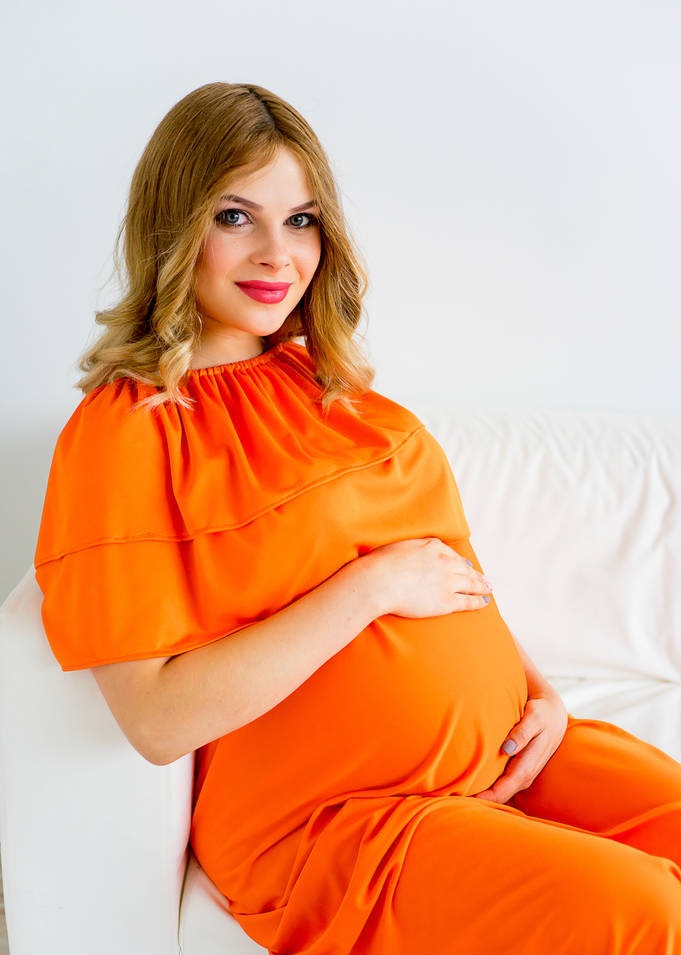How Should Women Prepare for Pregnancy, from the perspective of Traditional Chinese Medicine (TCM)
How Should Women Prepare for Pregnancy?
I. Rhythms of Life: Seven for Women, Eight for Men
According to traditional Chinese medicine (TCM), women follow a seven-year rhythm, while men follow an eight-year rhythm. In simple terms, the developmental rhythms of human life are akin to the annual rings of a tree: one ring per year for a tree, seven years for women, and eight years for men. This rhythm entails significant physical and cyclical changes in sexual characteristics and bodily functions.
By the age of twenty-four, women have developed reproductive capabilities. However, this period is not suitable for intercourse according to TCM. It is believed that premature depletion of Yin (essential substance in TCM) in women harms their blood vessels, just as early depletion of Yang harms men's vitality. Due to modern civilized lifestyles, human life rhythms have deviated from natural patterns, leading to phenomena such as precocious puberty, referred to in TCM as "early arrival of Tian Gui." This is detrimental, as the number of life cycles is fixed, and shorter cycles indicate reduced lifespan and diminished quality of life.
At twenty-one, women achieve equilibrium in kidney Qi and complete physical development, representing their most beautiful phase. By twenty-eight, their tendons and bones are robust, marking a peak in physical condition and a turning point. During this phase, energy levels are high, fatigue is minimal, and hair is at its most vibrant. However, disregarding the body's limits during this period may lead to health issues in the future.
II. The Optimal Period for Women to Conceive
While women at the age of twenty-eight may be capable of conception, their bodies are not fully developed for it. As women progress beyond twenty-eight, their bodies begin to decline, making conception more challenging and increasing the likelihood of miscarriage by the age of thirty-five.
The optimal period for female fertility is between twenty and twenty-eight years old, as ancient wisdom suggests marrying at twenty for women. During these eight years, it's advisable to aim for the first childbirth. At this peak physical stage, childbirth poses minimal risk to women's health and results in higher-quality offspring. The mother's health directly influences the child's well-being, reflecting a simple yet profound principle.
III. The Importance of Qi and Blood Reserves for Conception
With the optimal timing established, the focus shifts to planning and implementation. Just as military strategy dictates securing provisions before mobilization, conception requires adequate Qi and blood reserves in women.
TCM posits that men govern Jing (essence), while women govern blood. Infertility in men or women leads to what is commonly known today as infertility. TCM identifies three types of men and women prone to infertility: those with deficient Jing (essence), those exhausted from excessive indulgence, and those prone to cowardice; as well as women who are sexually promiscuous, have coldness in the uterus hindering conception, or experience marital discord and jealousy.
In summary, male infertility often stems from weak essence, while female infertility is associated with inadequate blood. Uterine coldness is a prevalent cause of female infertility, often indicated by menstrual pain. Resolving infertility involves strengthening Jing in men and fortifying blood in women. Women's reproductive health heavily depends on the health of their uterus, making it crucial to nurture both kidney Qi and the uterus.
IV. Nurturing Qi and Blood in Women
Maintaining warmth and avoiding cold: Attention to clothing, diet, living conditions, and activities is crucial. Exposing the body to cold can lead to internal coldness, adversely affecting the uterus and hindering conception. Similarly, excessive consumption of cold foods and drinks exacerbates uterine coldness. Living spaces should be well-lit and avoid north-facing rooms to prevent excessive Yin influence on the body. Vigilance is necessary during menstruation, rainy weather, and exercise to maintain warmth and prevent coldness from affecting the body.
Harmonizing the spleen and stomach: The spleen and stomach are essential for blood production. Imbalances in these organs can lead to Qi and blood deficiencies. Maintaining a balanced diet, avoiding excessive snacking, and engaging in moderate exercise are crucial for proper spleen function. Irregular eating habits disrupt the body's rhythm and may lead to constipation.
Maintaining emotional well-being: Emotional instability disrupts Qi flow and hampers blood circulation. Emotional balance is essential for conception, as imbalances can lead to various health issues. Deep sleep is the best tonic for nourishing Yin. Prioritizing quality sleep ensures efficient nutrient absorption and storage. Emotional stability and restful sleep are essential for harmonious Qi and blood circulation, creating an optimal environment for conception.
V. Determining the Sex of the Child
Ancient wisdom suggests that the sex of the child is influenced by the balance of Yin and Yang energies during conception. Favorable conditions for conceiving a boy include Yin enveloping Yang, while a girl is more likely when Yang envelops Yin. Achieving this balance involves factors such as the couple's compatibility, vitality, and emotions, which are complex and not easily explained.
VI. Abstaining from Intercourse during Three Weaknesses and Six Prohibitions
The "three weaknesses" refer to annual, monthly, and daily weaknesses, corresponding to the changes in seasons, phases of the moon, and adverse weather conditions, respectively. Conceiving during these weaknesses may lead to congenital deficiencies in the child due to the instability of cosmic energies. The "six prohibitions" advise against intercourse during certain physiological and emotional states, as well as unfavorable environmental conditions, to ensure the health of both mother and child.
In conclusion, ancient practices emphasize the importance of timing, physical health, emotional balance, and environmental factors in preparing for conception. Though modern understanding may differ, these principles offer valuable insights into holistic approaches to reproductive health.
